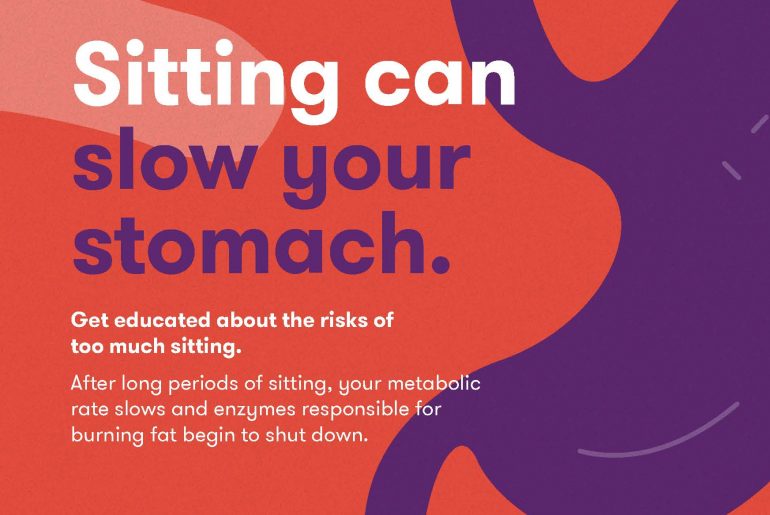Have you ever experienced stomach pains, discomfort, or indigestion after sitting too long at your desk? While exercise has long been anecdotally thought to influence digestion, more recent research has been exploring the impact of physical inactivity on digestion. This post will explore some ways exercise and inactivity influences your gut, as well as the implications for your health. But first, what does it mean to say that sitting “slows your stomach?” One way to consider it would be gastric emptying, or the movement of stomach contents into the small intestine (how quickly food leaves the stomach). Another possibility is gastrointestinal transit time, which is the time it takes something you eat to move from your mouth through your entire gastrointestinal tract. Both these definitions have been linked to physical activity and inactivity, as have health outcomes such as constipation and colorectal cancer. How physical inactivity slows your stomach: When you aren’t moving, your gut isn’t moving much either. An extreme example can be seen in people who are confined to bed or held immobile. Hospital inpatients are another population at risk of prolonged physical inactivity, and increased rates of constipation are seen in this population. However it can be…

